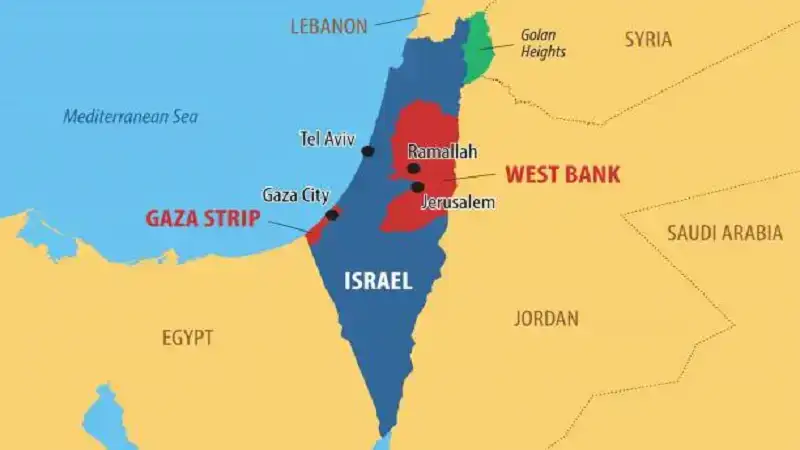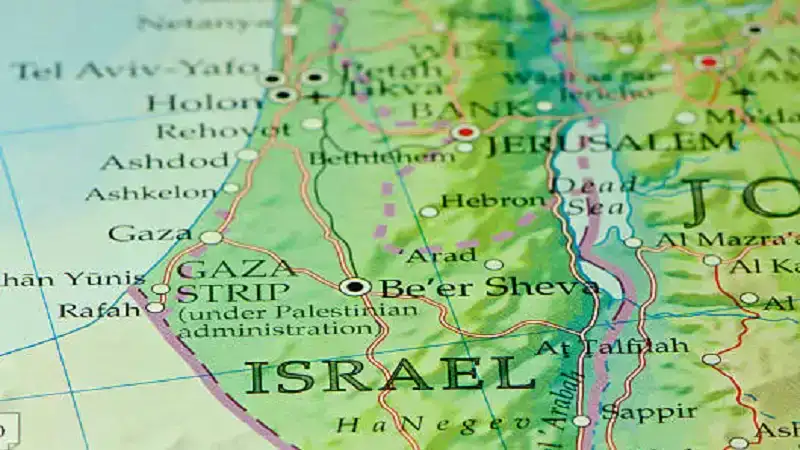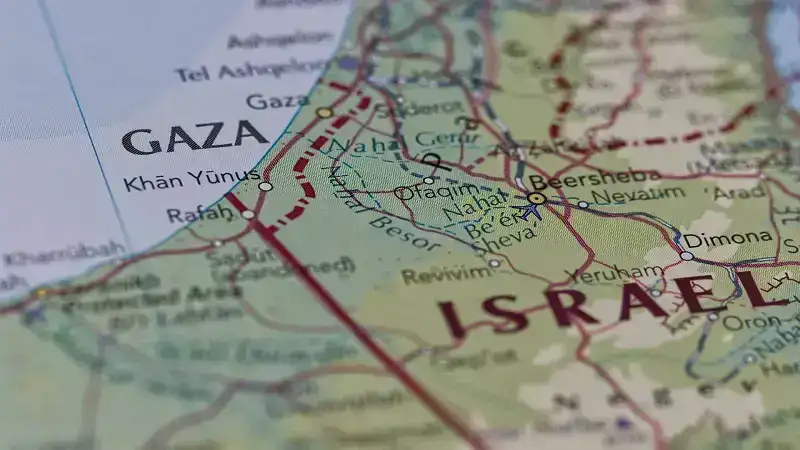Israel, a small yet profoundly influential country in the Middle East, is rich in history, culture, and religious significance. This article will delve deep into various aspects of Israel, using the title map:kmsezhnouco= israel to explore its vibrant landscapes, complex history, and diverse culture. Whether you’re planning a visit or simply seeking to learn more about this remarkable nation, this guide will provide you with a comprehensive overview of what makes Israel unique.
Introduction to Israel: A Land of Contrasts
When people think of Israel, they often picture ancient ruins, religious sites, or the conflict that has persisted for decades. However, Israel is so much more than its political struggles; it is a land of remarkable contrasts. From the ancient streets of Jerusalem to the modern skyline of Tel Aviv, Israel’s geography, culture, and history offer a mosaic of experiences that reflect its multifaceted identity.
Israel is a relatively small country, measuring about 290 miles from north to south. Despite its size, it boasts a diverse range of climates and landscapes, including deserts, mountains, and fertile valleys. This geographical diversity not only enhances the natural beauty of the land but also influences the various lifestyles of its inhabitants. As you explore, map:kmsezhnouco= israel will help you navigate through these beautiful contrasts.
The Religious Significance of Israel
Israel is often referred to as the Holy Land because of its significance to Judaism, Christianity, and Islam. Jerusalem, in particular, is a city that holds profound spiritual importance for millions around the world. The Western Wall, the Church of the Holy Sepulchre, and the Al-Aqsa Mosque are just a few of the sacred sites that draw pilgrims and tourists alike. Each of these locations tells a story that connects to the ancient past and reflects the enduring faith of countless individuals.
Jerusalem: A City Like No Other
Jerusalem is often described as a living museum, showcasing a rich tapestry of history and spirituality. The Old City, surrounded by ancient walls, is divided into four quarters: the Jewish Quarter, Christian Quarter, Muslim Quarter, and Armenian Quarter. Each area presents a unique atmosphere, filled with markets, religious sites, and stunning architecture.
The Western Wall
The Western Wall, also known as the Wailing Wall, is one of the holiest sites in Judaism. It is a remnant of the Second Temple, which was destroyed in 70 CE. Today, it serves as a place of prayer and reflection for Jews from around the world. Visitors can write their prayers on slips of paper and place them in the cracks of the wall, a practice that symbolizes hope and faith.
The Church of the Holy Sepulchre
For Christians, the Church of the Holy Sepulchre is a must-visit site. Believed to be the location of Jesus’s crucifixion, burial, and resurrection, this church attracts thousands of pilgrims each year. Its complex layout, filled with chapels and altars, provides a deep connection to the Christian faith.
Al-Aqsa Mosque
The Al-Aqsa Mosque is the third holiest site in Islam and holds significant importance to Muslims worldwide. Located on the Temple Mount, this mosque is not only a place of worship but also a symbol of Jerusalem’s diverse religious heritage.
Utilizing map= israel, visitors can navigate the winding streets of the Old City and uncover the treasures hidden within each quarter, enriching their understanding of this ancient city.
Tel Aviv: The Modern Side of Israel
While Jerusalem is steeped in history, Tel Aviv represents Israel’s modern spirit. Founded in 1909, Tel Aviv has rapidly developed into a bustling metropolis, known for its vibrant nightlife, technological innovation, and diverse culinary scene.
A Hub of Technology
Often referred to as the “Startup City,” Tel Aviv is at the forefront of technology and innovation. The city is home to numerous startups, tech companies, and research institutions, making it a magnet for entrepreneurs and investors. The thriving tech scene has contributed to Israel’s nickname, the “Startup Nation,” showcasing the country’s commitment to innovation.
Beaches and Nightlife
Tel Aviv’s beaches are among the most beautiful in the world, attracting sun-seekers and party-goers alike. The lively beachfront promenade is lined with cafes, bars, and restaurants, creating a vibrant atmosphere day and night. As the sun sets, the nightlife comes alive, with numerous clubs and live music venues offering entertainment for every taste.
Visitors can easily navigate Tel Aviv using map:kmsezhnouco= israel, guiding them to popular beaches like Gordon Beach and Hilton Beach, as well as trendy neighborhoods such as Neve Tzedek and Florentin.
The Importance of Technology in Israel
Israel’s reputation as a technology powerhouse is well-earned. The country has made significant contributions to various fields, including agriculture, medicine, and cybersecurity. The focus on research and development has transformed Israel into a global leader in innovation.
Medical Innovations
Israel is known for its groundbreaking medical technologies, from advanced imaging systems to revolutionary treatments for various diseases. The country’s healthcare system is also regarded as one of the best in the world, providing quality care and services to its citizens.
Cybersecurity
As cyber threats have increased globally, Israel has emerged as a leader in cybersecurity. Many of the world’s top cybersecurity firms are based in Israel, offering cutting-edge solutions to protect sensitive data and systems. The emphasis on security is deeply ingrained in Israeli culture, shaping the way technology is developed and implemented.
Using map= israel, travelers can explore innovation centers and tech parks throughout the country, learning about the latest advancements and the minds behind them.

The Dead Sea: Nature Marvel
The Dead Sea is one of the most unique natural wonders in the world. Known for its extremely high salt concentration, it is the lowest point on Earth, lying more than 1,400 feet below sea level. The mineral-rich waters offer a variety of health benefits, including therapeutic properties for skin conditions.
Floating in the Dead Sea
One of the most memorable experiences in the Dead Sea is floating effortlessly in its buoyant waters. Due to the high salt content, swimming is not possible; instead, visitors can enjoy a unique floating experience. The sensation is unlike any other, and many find it to be a relaxing escape.
Mud Treatments
The mineral-rich mud of the Dead Sea is famous for its healing properties. Visitors can indulge in mud treatments at various spas along the shore, rejuvenating their skin and promoting relaxation. The therapeutic effects of the mud have been recognized for centuries, and it remains a popular attraction.
Using map:kmsezhnouco= israel, you can find the best locations along the Dead Sea, including resorts and public beaches, ensuring you make the most of this natural wonder.
Masada: A Fortress in the Desert
Masada is an ancient fortress that sits atop a plateau overlooking the Dead Sea. It holds great historical significance, especially for the Jewish people, as it was the site of a dramatic stand against Roman forces. In 73 CE, a group of Jewish rebels chose to take their own lives rather than surrender to the Romans, making Masada a symbol of courage and resistance.
The Ascent to Masada
Visitors can reach the fortress by hiking up the Snake Path, a winding trail that offers breathtaking views of the surrounding desert landscape. For those who prefer a more leisurely ascent, a cable car provides a scenic ride to the top. Once at the summit, the views are awe-inspiring, and the ruins of the fortress invite exploration.
Exploring the Ruins
Walking through the ruins of Masada, visitors can see the remains of ancient structures, including palaces, baths, and storerooms. Guided tours provide historical context, bringing the story of Masada to life. map:kmsezhnouco= israel can help you find the best routes and insights about this iconic site.
Israel Vibrant Food Culture
Israeli cuisine is a fusion of flavors, influenced by the diverse backgrounds of its inhabitants. The food scene is a reflection of the country’s rich history, incorporating elements from Mediterranean, Middle Eastern, and even Eastern European cuisines.
Iconic Israeli Dishes
Some must-try dishes include:
- Hummus: A creamy blend of chickpeas, tahini, lemon juice, and garlic, often served with pita bread.
- Falafel: Deep-fried balls of ground chickpeas or fava beans, typically served in a pita with salad and tahini.
- Shakshuka: A hearty dish made with poached eggs in a spicy tomato sauce, often enjoyed for breakfast.
These dishes represent the vibrant flavors of Israel, and you can find them in restaurants and street food stalls throughout the country. Using map:kmsezhnouco= israel, you can discover the best eateries to indulge in authentic Israeli cuisine.
Food Markets
Visiting local markets is a great way to experience Israeli culture. The Machane Yehuda Market in Jerusalem and the Carmel Market in Tel Aviv are bustling with vendors selling fresh produce, spices, and artisanal products. These markets provide a sensory overload, with vibrant colors, enticing aromas, and lively interactions.
Israel Natural Beauty
Israel’s diverse landscapes offer an array of outdoor experiences, from hiking and biking to beach outings and desert exploration. The country’s natural beauty is showcased in its numerous national parks and reserves.
National Parks
Some of the most popular national parks include:
- Ein Gedi Nature Reserve: A stunning oasis in the desert, featuring waterfalls, hiking trails, and unique flora and fauna.
- Masada National Park: Home to the ancient fortress of Masada, offering breathtaking views and historical significance.
- Caesarea National Park: An archaeological site with ancient ruins, a Roman amphitheater, and beautiful Mediterranean views.
Utilizing map:kmsezhnouco= israel, you can plan your outdoor adventures and discover hidden gems throughout the country.
The Galilee Region
The Galilee region in northern Israel is known for its lush landscapes, rolling hills, and serene lakes. This area is perfect for hiking, biking, and wine tasting, as it is home to several wineries that produce high-quality Israeli wines. The beautiful scenery and tranquil atmosphere make Galilee a popular destination for nature lovers.
Israel Cultural Diversity
Israel is a melting pot of cultures, with people from various ethnic, religious, and cultural backgrounds living together. This diversity is evident in the country’s languages, traditions, and art forms.
Languages
Hebrew and Arabic are the official languages of Israel, reflecting the country’s Jewish and Arab heritage. English is also widely spoken, particularly in urban areas and tourist destinations. This linguistic diversity adds richness to daily life and interactions in Israel.
Festivals and Traditions
Israel is home to numerous cultural festivals that celebrate its diverse heritage. Events such as Yom Kippur, Passover, Eid al-Fitr, and the International Tel Aviv Dance Festival showcase the country’s rich traditions. Using map:kmsezhnouco= israel, visitors can find out about local festivals and events taking place during their stay.

Israeli Art and Music
Israel has a thriving arts scene, with a focus on both traditional and contemporary expressions. The country is home to numerous galleries, museums, and theaters that showcase local talent.
Museums and Galleries
The Israel Museum in Jerusalem is one of the country’s most significant cultural institutions, featuring a vast collection of art and archaeological artifacts. The Tel Aviv Museum of Art is another prominent destination, showcasing modern and contemporary art.
Music Scene
Israeli music reflects the country’s cultural diversity, incorporating elements from Jewish, Arabic, and Western musical traditions. From traditional folk music to contemporary pop, the Israeli music scene is vibrant and dynamic. Visitors can experience live performances at various venues across the country, celebrating the rich musical heritage of Israel. Using map:kmsezhnouco= israel, you can locate galleries, theaters, and music venues to immerse yourself in the artistic landscape.
Traveling Around Israel: Practical Tips
Traveling through Israel is generally easy and convenient, thanks to its well-developed transportation infrastructure. Here are some practical tips for navigating the country:
Public Transportation
Israel has a reliable public transportation system, including buses, trains, and light rail. The Israel Railways network connects major cities, while buses serve both urban and rural areas. Using map:kmsezhnouco= israel, you can plan your routes and find the best modes of transportation.
Renting a Car
For those who prefer more flexibility, renting a car is an excellent option. Driving in Israel is straightforward, and having a vehicle allows you to explore off-the-beaten-path destinations. Just be sure to familiarize yourself with local driving laws and customs.
Conclusion: Why Israel Should Be on Your Travel List
Israel is a country that offers a unique blend of history, culture, and natural beauty. From the ancient streets of Jerusalem to the modern innovations of Tel Aviv, each region tells a story that contributes to the nation’s rich tapestry. The vibrant food scene, diverse landscapes, and dynamic cultural experiences make Israel an unforgettable destination.
Using map:kmsezhnouco= israel as your guide, you can explore all that this remarkable country has to offer. Whether you seek spiritual enlightenment, adventure, or cultural immersion, Israel will captivate your heart and leave you with lasting memories. Read More beautydod.
FAQs
1.What is the best time to visit Israel?
The best times to visit Israel are during the spring (March to May) and fall (September to November), when the weather is mild and pleasant for exploring.
2.Is Israel safe for tourists?
Yes, Israel is generally safe for tourists. However, it’s important to stay informed about local news and follow travel advisories.
3.Do I need a visa to visit Israel?
Visitors from many countries, including the U.S. and most European nations, do not require a visa for stays of up to 90 days.
4.What is the official language in Israel?
The official languages of Israel are Hebrew and Arabic, although English is widely spoken throughout the country.
5.What currency is used in Israel?
The currency used in Israel is the Israeli New Shekel (ILS).
